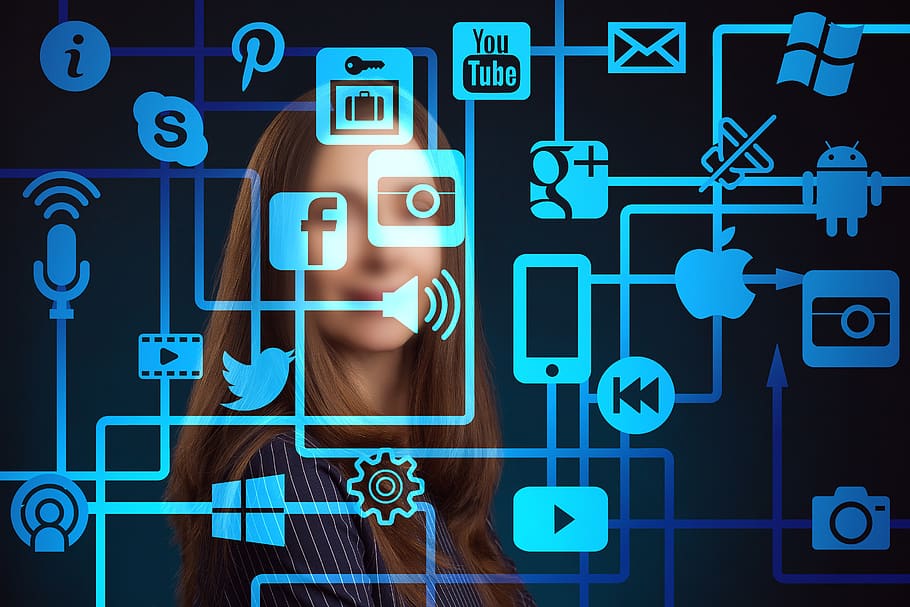You have probably heard this before: social media uses algorithm to keep track of your behaviour and use this to predict what you would like to see online. But how exactly do algorithms work? Easily put, algorithms give computers instruction on how a task should be performed. An easy example is using a search engine to find information. You have the input, namely the words you put in the search engine, the computer will search for relevant results, and the findings are the output. In this case, the algorithm are the steps taken in order to end up with the findings. But don’t be mistaken, algorithms are everywhere: in apps, navigators, websites and newer products, such as self-driving cars. Now I am not going to dive deeper into what an algorithm is exactly, but what I would like is to explain how algorithms are used by social media networks.
Predicting your preferences
A social media network that is known for its algorithm is Instagram. Many influencers have complained about how the network’s algorithm have influenced their visibility and the likes they receive online, which is also known as “shadowbanning”. Basically, Instagram’s algorithm determines what you view online. The algorithm tries to predict what posts you will enjoy most, based on your search activity, the amount of interaction you have with a person via Instagram and basic information about posts, such as location and hashtags. The explore function on Instagram, which is built to discover new content, also uses algorithm and looks at the type of content you have liked, shared or commented on in the past and will show similar posts from other accounts and will also show what those accounts are interested in as well. All of this should, according to Instagram, improve your experience whilst using the app. The result of algorithms on Instagram is that you won’t see certain posts at all, even though you follow an account. This is also the reason why you see the posts and stories uploaded by your closest friends first, because Instagram has noticed you interact with those people the most. In other words, Instagram knows what you do and do not like and with who you enjoy interacting most.
Do algorithms really make Instagram better?
Even though Instagram argues that it tries to improve our experiences online, the use of algorithm also has side-effects. First of all, algorithms can make users narrow-minded and biased. For example, during local elections Instagram will only show you the posts of political leaders and like-minded people that you looked for online earlier. As a result, in the future you will not get to see posts from people who have a different point of view, making the stream of information you receive monotone. This is called a “filter bubble” and could influence someone’s opinion and behaviour. Another downside of Instagram’s algorithm is that you could end up in a downward spiral with negative posts. Here I am trying to explain that people are more likely to like, comment and share posts that they feel related to. If a person is feeling down or is struggling, this will be reflected in the content they like and share. As the algorithm will detect this as something you enjoy seeing, it has a higher chance of ending up in your Instagram feed. Without someone noticing, your Instagram feed can be covered with posts that could determine your mood or could trigger you. There has even been research done on whether you could detect depression through analysing someone’s social media feed.
So despite sounding innocent, the influence of algorithms on our social media usage is larger than we might think. However, you should know that you can always control your algorithm through searching for posts and information that does not occur in your feed or through selecting the “not interested” button on the Instagram app.
Sources
What is an algorithm? An ‘in a nutshell’ explanation – ThinkAutomation
Shedding More Light on How Instagram Works
Why Instagram’s new algorithm could make us all more narrow-minded | by Keeping TABS | Medium
This Algorithm Can Tell If You’re Depressed Just From Your Instagram P (fastcompany.com)




I think that algorithms are a lot more specific than people tend to realize. For instance, If I typically send a whatsapp message to one of my friends everyday, they are automatically recommended to me on all other apps. Also, I only send music recommendations from spotify to one specific friend, and although I don’t usually text them as often as other people, whenever I’m on spotify, they are the first person to show as a recommendation. t’s interesting how impactful every single one of our online interactions is on the specificity of algorithms.